| Source (Hebrew) | Translation (English) |
|---|---|
אחר קריאת המגילה מברך הקורא: |
After reading the Book of Esther say: |
בָּרוּךְ אַתָּה יְיָ אֱלֹהֵֽינוּ מֶֽלֶךְ הָעוֹלָם, (הָאֵל) הָרָב אֶת רִיבֵֽנוּ וְהַדָּן אֶת דִּינֵֽנוּ וְהַנּוֹקֵם אֶת נִקְמָתֵֽנוּ וְהַמְשַׁלֵּם גְּמוּל לְכָל אוֹיְבֵי נַפְשֵֽׁנוּ וְהַנִּפְרָע לָֽנוּ מִצָּרֵֽינוּ. בָּרוּךְ אַתָּה יְיָ הַנִּפְרָע לְעַמּוֹ יִשְׂרָאֵל מִכָּל צָרֵיהֶם הָאֵל הַמּוֹשִֽׁיעַ׃ |
Blessed are you, YHVH our elo’ah, cosmic majesty, (the El) who pleads our cause, judges our suit and avenges our wrong, who renders retribution to all that hate our soul, and on our behalf deals out punishment to our adversaries. Blessed are you YHVH, who on behalf of your people Yisra’el deals out punishment to all their adversaries: the El [that is] the Savior. |
אֲשֶׁר הֵנִיא עֲצַת גּוֹיִם וַיָּֽפֶר מַחְשְׁבוֹת עֲרוּמִים׃ בְּקוּם עָלֵֽינוּ אָדָם רָשָׁע נֵֽצֶר זָדוֹן מִזֶּֽרַע עֲמָלֵק׃ |
—Who brought the counsel of the heathen to nought, and made the devices of the crafty of none effect, when a wicked man rose up against us, an arrogant offshoot of the seed of Amaleq. |
גָּאָה בְעָשְׁרוֹ וְכָֽרָה לוֹ בּוֹר וּגְדֻלָּתוֹ יָֽקְשָׁה לּוֹ לָֽכֶד׃ דִּמָּה בְנַפְשׁוֹ לִלְכּוֹד וְנִלְכָּד בִּקֵּשׁ לְהַשְׁמִיד וְנִשְׁמַד מְהֵרָה׃ |
Insolent in his riches, he dug himself a pit, and his own greatness laid him a snare. In his mind he thought to entrap, but was himself entrapped, he sought to destroy, but was speedily destroyed. |
הָמָן הוֹדִֽיעַ אֵיבַת אֲבוֹתָיו וְעוֹרֵר שִׂנְאַת אַחִים לַבָּנִים׃ וְלֹא זָכַר רַחֲמֵי שָׁאוּל כִּי בְחֶמְלָתוֹ עַל אֲגָג נוֹלַד אוֹיֵב׃ |
Haman displayed the hatred of his fathers, and stirred up against the children the ancient enmity of the brothers (Esav and Yaaqov), remembering not the mercy of Shaul, through whose compassion for Agag the enemy was born. |
זָמַם רָשָׁע לְהַכְרִית צַדִּיק וְנִלְכַּד טָמֵא בִּידֵי טָהוֹר׃ חֶֽסֶד גָּבַר עַל שִׁגְגַת אָב וְרָשָׁע הוֹסִיף חֵטְא עַל חֲטָאָיו׃ |
The wicked plotted to cut off the just, and the unclean was caught in the hands of the pure. (Mordekhai’s) lovingkindness (to Esther) prevailed over the father’s (Shaul’s) error, but the wicked (Haman) heaped sin upon the sins of his ancestor. |
טָמַן בְּלִבּוֹ מַחְשְׁבוֹת עֲרוּמָיו, וַיִּתְמַכֵּר לַעֲשׂוֹת רָעָה׃ יָדוֹ שָׁלַח בִּקְדֽוֹשֵי אֵל כַּסְפּוֹ נָתַן לְהַכְרִית זִכְרָם׃ |
In his heart he hid his cunning devices, and sold himself to do wickedness. He stretched forth his hand against El’s holy ones; he gave his silver to cut off the remembrance of them. |
כִּרְאוֹת מָרְדְּכַי כִּי יָֽצָא קֶֽצֶף וְדָתֵי הָמָן נִתְּנוּ בְּשׁוּשָׁן׃ לָבַשׁ שַׂק וְקָשַׁר מִסְפֵּד וְגָזַר צוֹם וַיֵּֽשֶׁב עַל הָאֵֽפֶר׃ |
When Mordekhai saw that wrath had gone forth, and that the decrees of Haman were issued in Shushan, lie put on sackcloth and wrapped himself in mourning, ordained a fast and sat upon ashes. |
מִי זֶה יַעֲמוֹד לְכַפֵּר שְׁגָגָה וְלִמְחוֹל חַטַּאת עֲוֹן אֲבוֹתֵֽינוּ׃ נֵץ פָּרַח מִלּוּלָב הֵן הֲדַסָּה עָמְדָה לְעוֹרֵר יְשֵׁנִים׃ |
Who will rise up to atone for error, and obtain pardon for the sin and iniquity of our fathers? A flower blossomed from the palm tree: lo! Hadassah arose to awaken the merit of those that slept in the grave. |
סָרִיסֶֽיהָ הִבְהִֽילוּ לְהָמָן לְהַשְׁקוֹתוֹ יֵין חֲמַת תַּנִּינִים׃ עָמַד בְעָשְׁרוֹ וְנָפַל בְּרִשְׁעוֹ עָֽשָׂה לוֹ עֵץ וְנִתְלָה עָלָיו׃ |
Her servants hastened to make Haman drink the wine of the poison of snakes. He rose by his riches, but fell in his wickedness; he made him a gallows, and was himself hung thereon. |
פִּיהֶם פָּתְחוּ כָּל יוֹשְׁבֵי תֵבֵל כִּי פוּר הָמָן נֶהְפַּךְ לְפוּרֵֽנוּ׃ צַדִּיק נֶחֱלַץ מִיַּד רָשָׁע אוֹיֵב נִתַּן תַּֽחַת נַפְשׁוֹ׃ קִיְּמוּ עֲלֵיהֶם לַעֲשׂוֹת פּוּרִים וְלִשְׂמוֹחַ בְּכָל שָׁנָה וְשָׁנָה׃ |
All the inhabitants of the world opened their mouths, for the lot of Haman was turned to be our lot. When the righteous was delivered out of the hand of the wicked, and the enemy was put in his stead, the Jews ordained for themselves to celebrate Purim, and to rejoice thereon every year. |
רָאִֽיתָ אֶת תְּפִלַּת מָרְדְּכַי וְאֶסְתֵּר. הָמָן וּבָנָיו עַל הָעֵץ תָּלִֽיתָ׃ שׁוֹשַׁנַּת יַעֲקֹב צָהֲלָה וְשָׂמֵֽחָה בִּרְאוֹתָם יַֽחַד תְּכֵֽלֶת מָרְדְּכָי׃ |
You did regard the prayer of Mordekhai and Esther: Haman and his sons you did hang upon the gallows. The lily of Yaaqov rejoiced and was glad when Mordekhai was seen in the purple. |
תְּשׁוּעָתָם הָיִֽיתָ לָנֶֽצַח וְתִקְוָתָם בְּכָל דּוֹר וָדוֹר׃ לְהוֹדִֽיעַ שֶׁכָּל קֹוֶֽיךָ לֹא יֵבֹֽשׁוּ וְלֹא יִכָּלְמוּ לָנֶֽצַח כָּל הַחוֹסִים בָּךְ׃ |
You have ever been Yisra’el’s salvation, and their hope in every generation, to make known that all who hope in you shall not be ashamed, neither shall any be confounded who put their trust in you. |
אָרוּר הָמָן אֲשֶׁר בִּקֵּשׁ לְאַבְּדִי בָּרוּךְ מָרְדְּכַי הַיְּהוּדִי אֲרוּרָה זֶֽרֶשׁ אֵֽשֶׁת מַפְחִידִי בְּרוּכָה אֶסְתֵּר מְגִנָּה בַּעֲדִי וְגַם חַרְבוֹנָה זָכוּר לְטּוֹב׃ |
Accursed be Haman who sought to destroy me; blessed be Mordekhai the Yehudi; accursed be Zeresh, the wife of him that terrified me; blessed be Esther my protector, and may Ḥarbonah also be remembered for good. |
This is the piyyut known by its incipit, Asher Heni. The alphabetic acrostic is written as an extension to the blessing following the reading of Megillat Esther. Such piyyutim are all of the old Nusaḥ Erets Yisrael. Of anonymous authorship, its date corresponds to other early piyyutim of similar style, and from the later period of such piyyutim — no later than 500 CE. (It has been mytho-historically ascribed to the Men of the Great Assembly in Mahzor Vitri, cited in Likkutei Mahariah vol.3 (1911), p.118b.) The very last stanza begining “Arur Haman” was appended at a later date. Macy Nulman in his Encyclopedia of Jewish Prayer writes that the piyyut is mentioned by Maimonides citing the Mishneh Torah Hilkhot Megillah 1:6, but we cannot find it there.
The translation here is as found in the Rabbi Simeon Singer’s Authorised Daily Prayer Book (1890), which I’ve lightly adapted, re-Hebraizing words and removing archaisms. –Aharon Varady
Source(s)


“אֲשֶׁר הֵנִיא | Asher Heni, a piyyut recited after the reading of Megillat Esther and its concluding blessing” is shared through the Open Siddur Project with a Creative Commons Attribution-ShareAlike 4.0 International copyleft license.

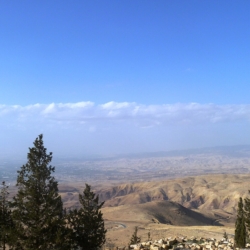
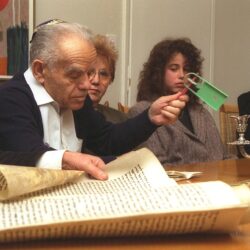
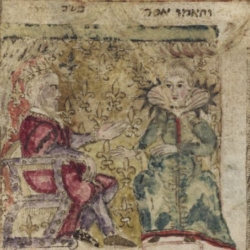

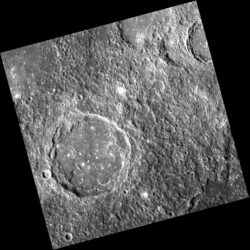
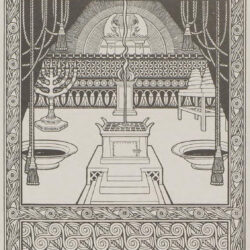
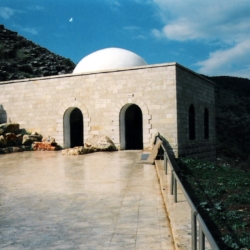


Leave a Reply